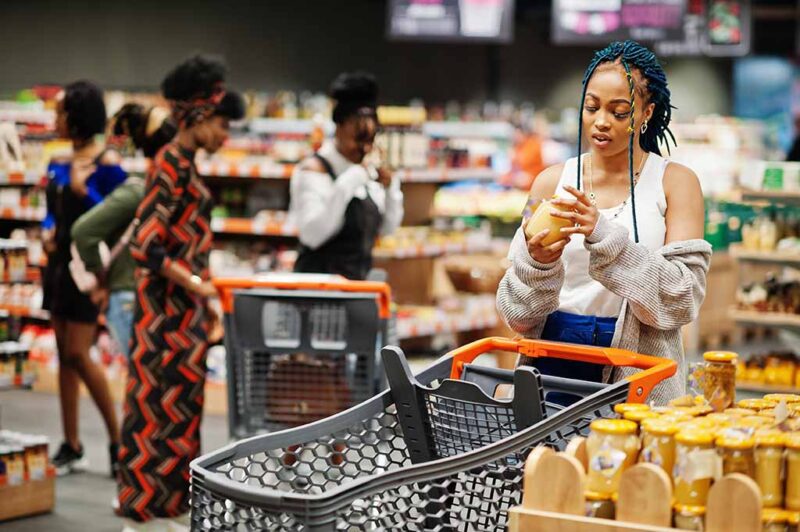National Issues
Analysing Consumables: Consumer Protection, Laws And Liabilities In Nigeria -By Oyetola Muyiwa Atoyebi & Theodora Nnodim
The Act further states that a consumer includes a person to whom a service is rendered[2]. In other words, a consumer is someone who not only purchases goods but also makes use of the goods purchased. Therefore, a consumer can also be a producer because the materials being purchased are to be used for production. The key thing to note here is that the products or goods bought are going to be made use of.

Nigerian consumers have faced difficulties in obtaining secure and valuable goods and services. These bogus products are the direct result of certain situations, such as collapsed buildings, constant vehicle breakdowns, an increased rate of fire incidents and food poisoning, due to the low quality materials used. With this challenge arises the need to adequately examine laws that protect consumers’ rights.
INTRODUCTION
The issue of Consumer protection has annexed widespread debates for centuries. After the first Consumer Protection Agency was enacted, consumers in Nigeria are nevertheless struggling with onerous issues in the consumption and utilisation of services. The intricacies of the contemporary products, outrageous prices, tainted, bogus and flawed products, are some of the obtrusive issues or problems being experienced by consumers.
Similarly, the providers of these services contribute to the issues faced by the consumers. Therefore, these consumers have to deal with the adverse situation of having to purchase products lower than the prescribed standard for slap dashed services and or no service at all.
Nigerian consumers have faced difficulties in obtaining secure and valuable goods and services. These bogus products are the first-hand results of certain situations that occur, such as; collapsed buildings, constantbreakdown of vehicles, increased rate of fire incidents and food poisoning, particularly to the minimal quality materials involved.
DEFINITION OF TERMS
WHO IS A CONSUMER?
The Federal Competition and Consumer Protection Act 2018(FCCPA)defines a consumer as any person who purchases or offers to buy goods different from the purpose of resale, but does not include a person who purchases any goods for the purpose of using them in the production or manufacture of any other goods or articles for sale[1].
The Act further states that a consumer includes a person to whom a service is rendered[2]. In other words, a consumer is someone who not only purchases goods but also makes use of the goods purchased. Therefore, a consumer can also be a producer because the materials being purchased are to be used for production. The key thing to note here is that the products or goods bought are going to be made use of.
MEANING OF CONSUMER PROTECTION
Monye defines consumer protection as the act of securing the interests of the consumer in situations concerning the supply of goods and services, fakeand harmful practices as well as environmental degradation[3]. It is the furnishing of suitable methods to guard the safety of all individuals against harmful, degraded, and fake business practices.
MEANING OF CONSUMABLES
These refer to consumer goods utilised for everyday living. They are goods produced/developed for the sole purpose of being used. Whilst some of the goods are durable, the others are non-durable. It is durable when it can be used several times over and non-durable when used just once.
With this in mind, it is evident that the word consumables is quite broad. It is not limited to what is put in the mouth, hence, it covers electricity, information, utensils, building materials, clothing, makeup, vehicles, etc.
LAWS GUIDING THE INTERESTS OF CONSUMERS AS WELL AS GOODS AND SERVICES IN NIGERIA
The Federal Competition and Consumer Protection Act 2018, is the apex and primary law provided to protect the interests and rights of consumers in Nigeria. The FCCPA established the Federal Competition and Consumer Protection Commission otherwise known as the ‘Commission’. The role of the Commission (FCCPC) includes but is not restricted to the following[4]:
- Protect and promote the interests and welfare of consumers by providing consumers with a wider variety of standard products at competitive prices.
- Prohibit restrictive or unjust business practices which prevent, restrict or distort competition or constitute an abuse of a dominant position of market power in Nigeria.
Some other regulations in collaboration with the Commission[5] include, but are not limited to:
- The Central Bank of Nigeria (CBN) and the Commission collaborate in resolving the complaints of consumers and financial sector investigations.
- The Commission collaborates with Federal Road Safety Corps (FRSC)to guarantee the security and comfort of road transport consumers. The Commission seeks the support of FRSC in investigating and resolving consumer complaints relating to road travel, when necessary.
- The Commission collaborates with the National Agency for Food and Drug Administration and Control (NAFDAC) in matters relating to food, drugs and beverage industry. Mostly focusing on interdicting harmful, fake, substandard products before entering trade, and seizure and confiscation after entering the trade.
- The Commission and Nigerian Electricity Regulatory Commission (NERC)have a Memorandum of Understanding which guides their collaboration on consumer rights-related matters in the power sector. The Commission is part of the NERC Consumer Forum which is an administrative appeal platform for consumer complaints. The Forum meets regularly to resolve complaints by consumers.
It is noteworthy, that where there is a conflict between FCCPA and other regulations governing consumer protection, the FCCPA will take precedence[6].
RIGHTS OF CONSUMERS
The Commission has laid down rules[7] to protect the interests of consumers in the purchase of goods and services. These rules apply to the purchase of all goods and services with no exception. In other words, the interests of the consumers are protected regardless of the service sought after. The rules are as follows:
- A distributor shall not display any goods or services for sale without adequately displaying to the customer a price for these goods and services.
- When the description is likely to mislead the consumer, it should not be applied.
- A conspicuous notice that a product is inferior or second-hand, must be applied.
- A consumer has a right to examine the goods as well as a right to return the goods when defective.
- Consumers have a right to cancel in advance any booking, reservation, or order.
- Manufacturers owe a duty to label goods properly.
WHO SHOULD BE LIABLE?
Flowing from the brief analysis of the rights of consumers in relation to the purchase of goods and services, the question that arisesis… “are there remedies for the consumer who has bought defective goods against the seller, distributor or manufacturer for the defectiveness of the goods purchased?” If the answer is yes, what is the nature of this remedy and what are the conditions for gaining the remedy?
In Torts, the burden of proof lies on the purchasers or consumersparticularly to show that the defective goods purchased caused some harm to them. Consequently, most consumer actions against manufacturers and retailers do not succeed mostly because of their inability to meet the required standard of proof expected of them by the courts[JA1] .
However, the enactment of the FCCPA 2018 has brought about some reform on the issue of liability. The Act places the onus of proof on the manufacturers’ retailers/agents rather than the consumers[8]. The Act further states that where a damage is caused wholly or partly by defective goods or the supply of a service, the undertaking that supplies the goods or service will be liable for the damage.[9]
Thus, remedies such as imprisonment or a fine or both are available to the consumers to whom such wrong has been done.
CONCLUSION
From the foregoing, it is clear that the approach to who bears the burden of proof no longer falls on the consumer, but on the manufacturers/retailers, owing to the enactment of the FCCPC. The question is, will individuals speak up after being so aware of their rights?
AUTHOR: Oyetola Muyiwa Atoyebi, SAN.
Mr. Oyetola Muyiwa Atoyebi, SAN is the Managing Partner of O. M. Atoyebi, S.A.N & Partners (OMAPLEX Law Firm) where he also doubles as the Team Lead of the Firm’s Emerging Areas of Law Practice.
Mr. Atoyebi has expertise in and a vast knowledge of Litigation and Alternative Dispute Resolution and this has seen him advise and represent his vast clientele in a myriad of high level transactions. He holds the honour of being the youngest lawyer in Nigeria’s history to be conferred with the rank of a Senior Advocate of Nigeria.
He can be reached at atoyebi@omaplex.com.ng
COUNTRIBUTOR: Theodora Nnodim.
Theodora Nnodim is a member of the Dispute Resolution Team OMAPLEX Law Firm. She also has remarkable legal experience assisting consumers who have been wronged by a company.
She can be reached at theodora.nnodim@omaplex.com.ng.
[1]Section 167 (1) (a) Federal Competition and Consumer Protection Act 2018
[2]ibid. section 167 (1) (b)
[3]F. N. Monye Law of Consumer Protection (Ibadan: Spectrum books Limited 2003) 20.
[4]S. 1 (a) (b) Federal Competition and Consumer Protection Act 2018
[5]Federal Competition and Consumer Protection Commission <Strategic Alliances – Federal Competition and Consumer Protection Commission (fccpc.gov.ng)>accessed 10 April 2022
[6] Enyinnaya C. Uwadi, ‘The Nigerian Federal Competition and Competition Protection Act 2019: Lessons from South Africa’ (2019) AfronimicaLaw <https://www.afronomicslaw.org/2019/09/25/the-nigerian-federal-competition-and-competition-protection-act-2019-lessons-from-south-africa/> accessed 10 April 2022
[7]Section 115 -133 supra
[8]Section 145 of the Federal Competition and Consumer Protection Act 2018
[9]Ibid. section 136
[JA1]What is the prove expected from consumers by the court?










